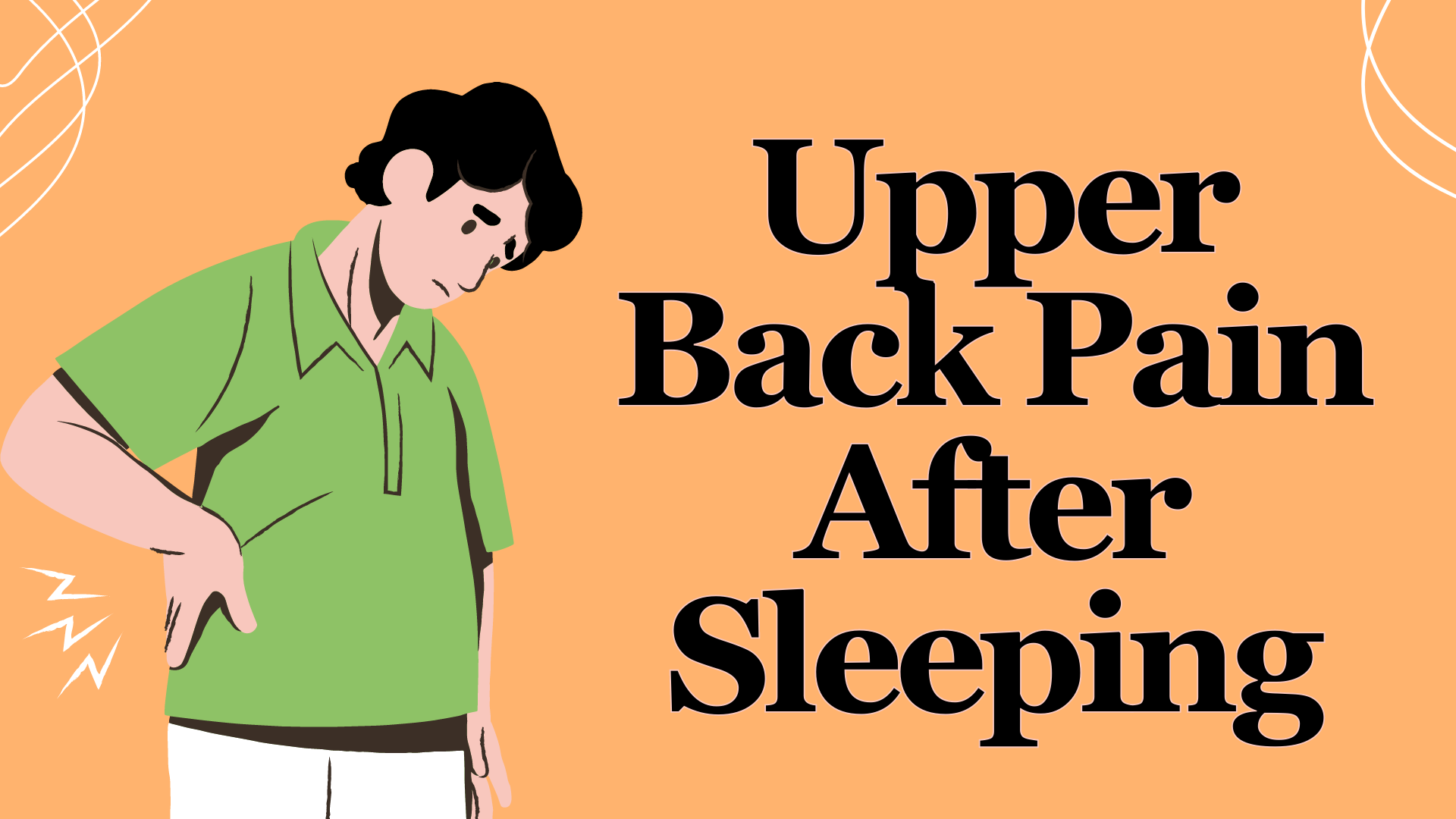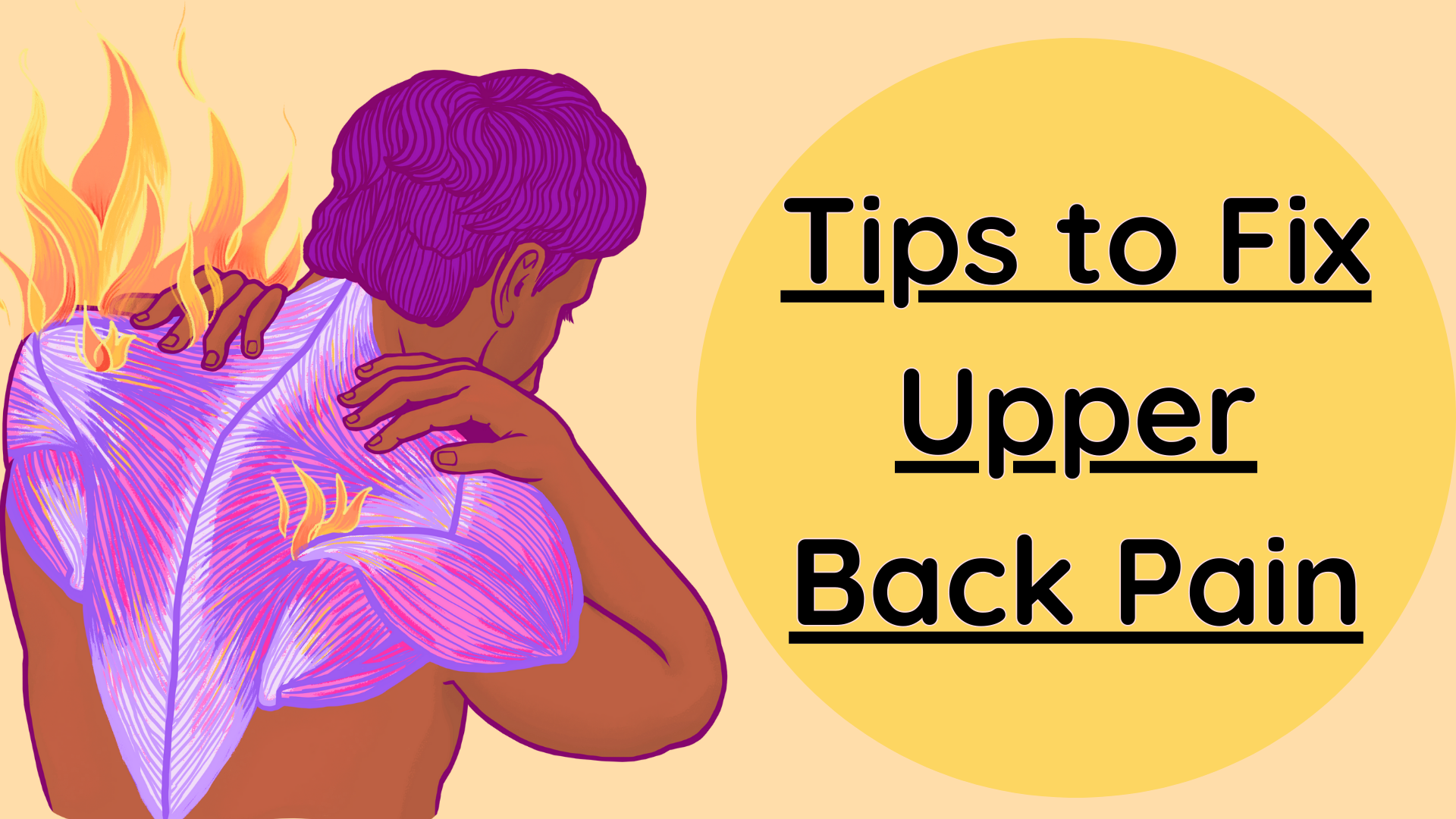
Upper Back Pain After Sleeping
Waking up with upper back pain can be a frustrating and uncomfortable experience. Whether it’s a dull ache or sharp discomfort, upper back pain after sleeping can significantly impact your daily routine and overall well-being. In this article, we will explore the possible causes of upper back pain after sleeping and provide practical tips and solutions to find relief and prevent future discomfort.
First Steps to Stop Back Pain After Sleeping:
If you wake up with upper back pain, the first step is to assess your sleeping environment. Ensure that your mattress and pillow adequately support your body and promote proper spinal alignment. A mattress that is too firm or too soft can contribute to back pain. Similarly, an unsupportive pillow can strain the neck and upper back. Consider investing in a quality mattress and pillow that suit your preferences and provide adequate support.
Habits that Create Back Pain:
Certain habits can exacerbate upper back pain after sleeping. Poor posture during the day, especially while sitting or working at a desk, can contribute to back pain. Slouching and hunching forward can strain the muscles in the upper back. Additionally, carrying heavy backpacks or bags on one shoulder can lead to muscle imbalances and tension. Be mindful of your posture throughout the day and make an effort to maintain proper alignment.
Self-Help Solutions: Upper Back Pain Relief:
When upper back pain strikes, there are several self-help solutions you can try for relief. Gentle stretching exercises can help alleviate muscle tension and improve flexibility. Focus on stretches that target the upper back, shoulders, and neck. Applying heat or cold therapy can also provide temporary relief by reducing inflammation and relaxing the muscles. Experiment with both methods to see which one works best for you.

Tips to Fix Upper Back Pain
More Tips to Fix Upper Back Pain:
In addition to stretching and temperature therapy, there are other strategies you can incorporate into your daily routine to address upper back pain after sleeping. Regular exercise that focuses on strengthening the core and back muscles can improve posture and reduce the risk of pain. Practicing good ergonomics, such as adjusting your workstation setup and taking frequent breaks to stretch, can also help alleviate upper back pain.
Best Sleeping Position for Upper Back Pain:
Finding the optimal sleeping position can significantly reduce upper back pain. Sleeping on your back with a pillow to support the natural curve of your neck and a small rolled-up towel under your upper back can help maintain proper spinal alignment. If you prefer sleeping on your side, use a supportive pillow to keep your neck in line with your spine. Avoid sleeping on your stomach as it can strain the neck and upper back.
Find a Back Pain Specialist:
If your upper back pain after sleeping persists or worsens despite self-help strategies, it may be beneficial to consult a back pain specialist. A healthcare professional can evaluate your condition, provide a comprehensive diagnosis, and recommend appropriate treatments. They may suggest physical therapy, chiropractic care, or other specialized interventions tailored to your specific needs.
Upper back pain after sleeping can disrupt your day and affect your overall quality of life. By implementing the first steps to stop back pain after sleeping, identifying habits that contribute to discomfort, and practicing self-help solutions, you can find relief and prevent future occurrences. Experiment with different strategies and seek professional guidance if needed. Remember, taking proactive steps to address upper back pain can promote better sleep and restore your overall well-being.





